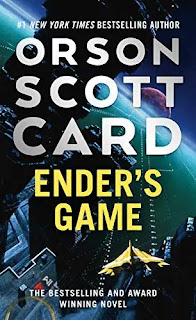I recently ran across a quote claiming that older women who love books and who were born in the month of September are extremely dangerous. The actual quote is more memorable than this paraphrase, but unfortunately, I have this habit of writing interesting things on little pieces of paper and then, of course, not being able to find them. When I run across the real quote, I’ll send it your way.
It is now September and I was,
indeed, born in this month. And I have loved books since before I was born,
when my mother read to me in utero. I’m not sure about the dangerous
part. You can decide that.
One of the rituals of aging is the
difficult and much maligned task of downsizing. For Hal and me that primarily meant
paring down our library, books we spent a life-time collecting. Before moving
here to the retirement community, we actually found new homes for about
two-thirds of our books. Yet we still have five bookcases, plus shelves above
our desks, here in our two-room apartment. Clearly, we’re not finished with our
task.
So, little by little, I’m deciding
which books to give our kids (who don’t necessarily want them), which to donate
to the community library, and which go to Goodwill (our last choice).
And I’m also determining which
books are keepers. These are the books I really do re-read. Or books with such
an emotional tie that I would feel pain at losing them.
I’ve decided to share a small part
of my “keeper” collection with you, since many of you are also book lovers
(whatever month you were born in).
--I’m keeping a dictionary. Not
Webster’s (I’m keeping that too, for practical purposes—I’m a poor speller).
This is a book I discovered while browsing in a Pasadena bookstore years ago.
It’s called Mrs. Byrne’s Dictionary of Unusual, Obscure, and Preposterous
Words (Josefa Heifetz Byrne). I’m a word-lover, and this book has given me
much delight. Here’s a sampling: adoxography means “good writing on a
trivial subject” (something to avoid); grammatolatry means “worship of
words or letters” (is love the same as worship?); metrophobia,
“hatred or fear of poetry” (dangerous stuff, that poetry); moanworthy, “lamentable,
pitiful”; resurrectionist, “a body snatcher or grave robber”; and swelp,
a perennial complainer (from “so help” me, God). You can see why I don’t
want to give up this book.
--The Brothers Karamazov (Fyodor Dostoevsky), the 1946 Heritage Club hardback edition. This comes from my parents’ Heritage collection, and this particular edition contains 46 full-page lithographs by the German Quaker artist, Fritz Eichenberg. The art is wonderful and captures the haunting Russian mood of the book. Plus, this is a book I read and re-read, partly because it’s too difficult to capture in one reading. I love the psychological study of the human personality through the three brothers (body, intellect, spirit). Maybe on my fourth or fifth reading I’ll understand the book.
--Ender’s Game (Orson Scott Card). In fact, I’m keeping the first six books of the series. (After #6 I stopped buying them). The first is the best. It’s Sci-Fi, with excellent character development, and a compelling plot. I don’t usually go for violence, but I like the irony of this being the most violent book on peace I’ve ever read.
--The Return of the Prodigal
Son (Henri Nouwen). I’ve quite a collection of books by Nouwen, most of
which I’ll keep, but this is my favorite. It’s the meditations on Jesus’
parable that Nouwen thought through while standing before Rembrandt’s painting
of the same name. I find the book profound. A few years after reading the book
for the first time, I found myself in Russia’s Hermitage art museum, standing
in front of the same huge painting. It was an unforgettable experience.
--A Book of Luminous Things: An
International Anthology of Poetry (edited by Czeslaw Milosz). I discovered
this anthology browsing in a bookstore in the Los Angeles International
Airport, waiting for Hal to come home from a research trip to Guatemala. I was
attracted first of all by the wonderful title, and second by the fact it was
edited by Milosz, Nobel Prize winning Polish poet. It was an impulse buy that
I’ve never regretted. The English translations are of poems from around the
world, with a heavy preponderance of Polish writers. It’s a wonder and a
marvel. I discover new favorites all the time.
Cry, the Beloved Country (Alan Paton), one of my all-time favorite novels. This lyrically beautiful novel tells the story of a Zulu pastor and his rebellious son, set in the context of the racial tensions of South Africa. I’m moved to tears every time I read it.
Pilgrim at Tinker Creek (Annie
Dillard). This Pulitzer Prize winner first came out in 1974. My copy is much
underlined, and I’m realizing it’s time to read it again. It gave (and gives)
me a new way of walking through the natural world, both its wonder and its
horrors. I’ll never look at a pond in the same way again.
Silence (Shusaku Endo).
This sensitive and beautifully written novel gives a unique view of the spread
of Christianity, its triumphs and, especially, its failures. Set in Japan in
the 17th century, it’s a haunting account of when a believer cries
out to God and God answers with silence.
These are just a few of the books I’m
keeping, at least for the time being. They’re dangerous only in that they
frustrate my attempts to downsize. Other than that, they’re wholesome and
healing in the way that only truth can be.
I would love to know about some of
your keepers. Why not put a few titles in the comments?
Up with books!
Up with September birthdays!
Up with dangerous old women!



No comments:
Post a Comment